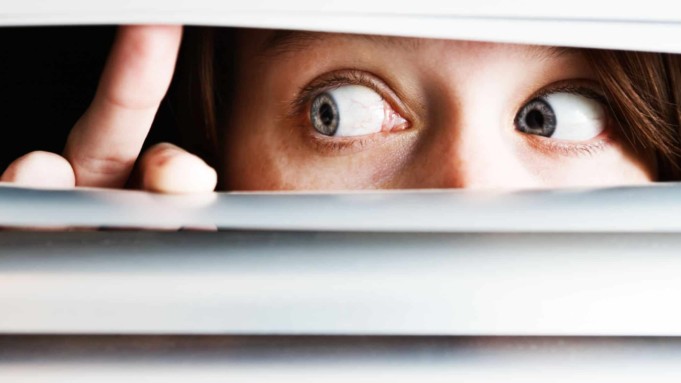Paranoia is a form of thinking known as a delusion. There are fears or even assumptions that are not necessarily grounded in reality among people who are paranoid.
It includes them feeling like they are being monitored, or those other persons, organizations, or powers are working against or out to get them.
Knowing what paranoia is will help you determine how to deal with it or get treated for it.
Symptoms of Paranoia
Paranoia can take different forms, but the most common are:
- Ideas of reference: Believing that unique secret messages—other than advertising—are being sent to you via the TV, newspapers, mailings, mass emails, or the internet
- Overestimating your position: Assuming that you have a specific role or importance that isunrecognized or thwarted by others in the universe.
- Overthinking interactions: Assuming that the way people look at you, their tone of voice, or other elements of their conduct have a special significance that does not have any special meaning
- Suspicion: Challenging the intentions or actions of other people (out loud or in your mind), wondering why people do what you watch them do or what you think they do but have not watched
- Trust problems: Unrealistic or exaggerated distrust of strangers, acquaintances, or loved ones
They are all examples of how paranoia can be encountered. Nonetheless, you might have an experience of feeling like you are working against or undermining someone else, which is not on this list. However, it is still a form of paranoia.
What is the cause of paranoia?
Paranoid feelings are a natural aspect of the human experience and are particularly prevalent in vulnerable individuals.
For instance, you might think you’re being followed or watched when you’re strolling alone late in the night, even when you’re not. Suppose you’re under a lot of pressure.
In that case, you might think that people are intentionally undermining youor if you haven’t had that much sleep, you might develop absurd paranoid ideas simply because you’re exhausted. Your brain isn’t running at its best.
Typically, these paranoid thoughts don’t trigger worry and will go away once the situation is over. It may become problematic when paranoia is outside of the context of typical human experiences. Mental health disorders and drug use are the two most prevalent sources of problematic paranoia.
Paranoia can be an aspect of several mental health issues, such as depression and bipolar disorder. However, psychotic disorders, like schizophrenia, are most typically associated with it. Paranoia is also the dominant attribute of paranoid personality disorder.
The more serious the mental disorder, the less knowledge or insight the individual has that he/she is genuinely experiencing paranoia instead of the suspected threat other people or the world.
Paranoia is associated with the symptoms of many medications, including marijuana, alcohol, cocaine, meth, LSD, and bath salts, both for overdose and withdrawal.
The more intoxicated the person is, the more likely he is to think others are against him. Although a moderately intoxicated user of marijuana might laugh at himself for having paranoid thoughts, someone high on meth or withdrawing from alcohol might be so persuaded that others are against him that he becomes aggressive in what he feels as self-defense.
Treatments for paranoia
While paranoia can be a severe symptom of mental illness, if you have had extreme paranoid feelings, especially if they have been going on for many days and you are beginning to believe that people are actually against you, it is crucial to see a doctor right away.
Remember that it’s common for paranoid people to be afraid to speak to others in control, even physicians. Thus, try to keep it at the forefront of your mind that your doctor’s main interest is to make you feel better.
It will be possible for your doctor to evaluate your mental and physical health and to advise you on the cause of your paranoia. It may require a time of detox if you have been using narcotics.
You may not like this concept but remember that substance use can cause latent mental health issues. Therefore, it may lead to severe consequences if you choose to use drugs when you have paranoid feelings.
Paranoia treatment is always beneficial and may rely on the root cause of the symptoms. Prescription medications or medicines for paranoia help treat the disease caused by depression, bipolar disorder, and psychosis.
Still, only a doctor can decide the best treatment for you. CBT can also be beneficial for anxiety and paranoia as a sign of mental health issues if it is drug or medication-induced.
How is paranoia identified?
Your doctor will conduct a medical examination and have a comprehensive medical history to help them rule out a physical or medical reason for your symptoms, such as dementia.
Your doctor will refer you to a therapist or a psychologist if your paranoia is part of a medical disorder. The psychologist will then conduct an assessment and clinical psychological assessments to help them decide your mental status.
Other factors that can occur in individuals with paranoia are:
- Bipolar disorder
- Anxiety
- Depression
The expectation is normally optimistic for people who have paranoia, seek care, and follow through with it. However, treatment can be a slow process. Therapy and medication are effective in treating it.
Paranoid people are typically distrustful of others and view paranoid thoughts as true. It makes the process of finding care hard.
They may not think they require medical treatment if someone you know displays the signs of paranoia. Nonetheless, it would help if you persuaded them to see a doctor for a diagnosis as soon as possible.












